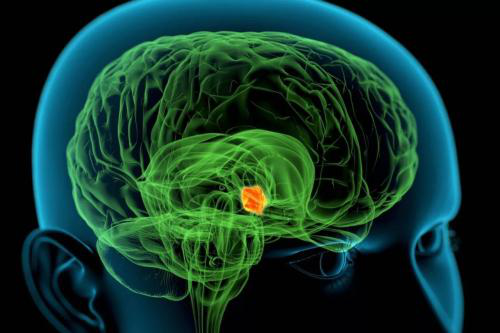A team led by researchers at Baylor College of Medicine and Cambridge University found that the SRC-1 gene affects body weight control by regulating the function of neurons in the hypothalamus (the appetite center of the brain).
The researchers found that SRC-1 is highly expressed in the mouse hypothalamus, especially in neurons expressing the Pomc gene. Hypothalamic neurons expressing the anorectic peptide Pro-opiomelanocortin (Pomc) regulate food intake and body weight. Steroid Receptor Coactivator-1 (SRC-1) interacts with a target of leptin receptor activation, phosphorylated STAT3, to potentiate Pomc transcription.
When the researchers deleted the SRC-1 gene in mouse Pomc neurons, the expression of Pomc decreased, and the mice ate more and became obese.
The researchers also explored whether SRC-1 also plays a role in regulating body weight. They found 15 rare SRC-1 gene variants in severely obese children that disrupted the function of SRC-1. In severely obese individuals impair leptin-mediated Pomc reporter activity in cells, whilst four variants found in non-obese controls do not.
In addition, mice that express a human SRC-1 gene variant in obese children by genetic engineering will eat more and gain weight. This is the first report of SRC-1's role in controlling the body weight in the hypothalamus.
"Through evidence linking basic and genetic animal research to human genetic data, we believe SRC-1 is an important regulator of body weight," the researchers said.
EIAAB SCIENCE INC, WUHAN has developed SRC-1 protein, antibody and ELISA kit.
Welcome scientific research workers to choose and purchase.








